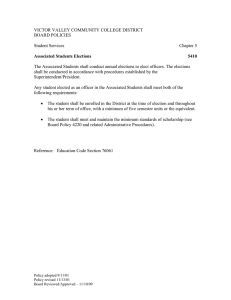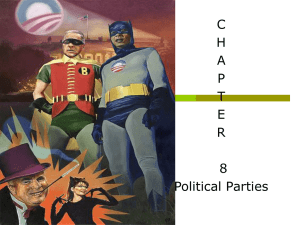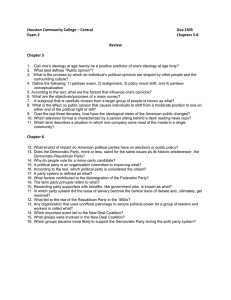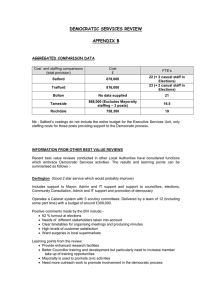AP Government and Politics Chapter Focus
advertisement
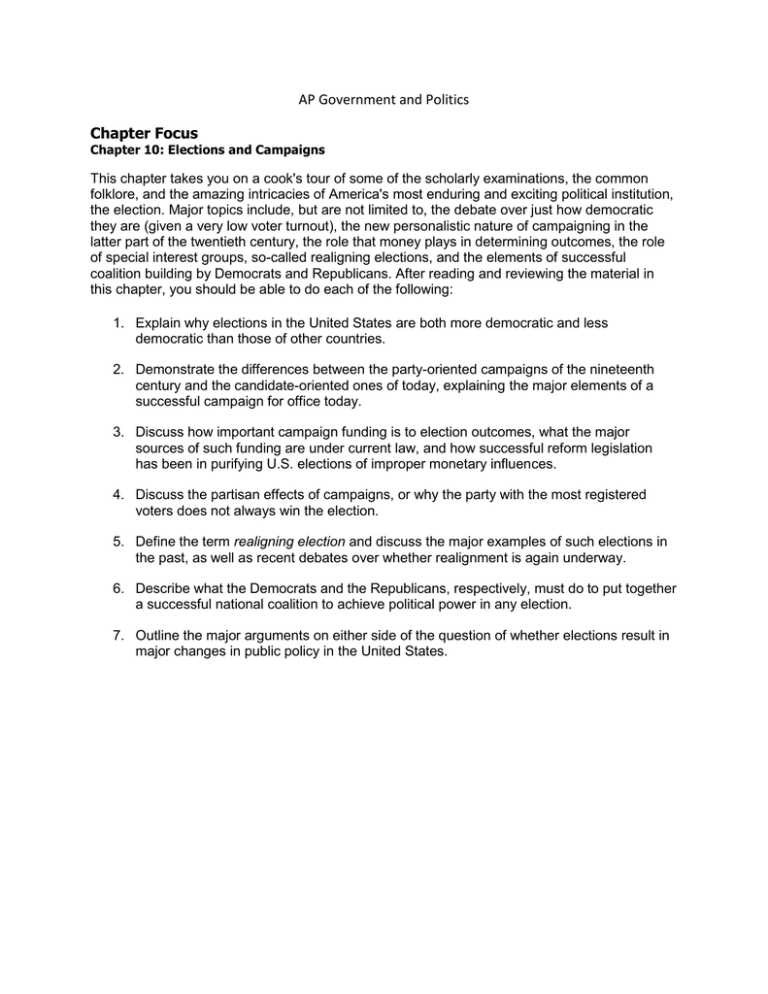
AP Government and Politics Chapter Focus Chapter 10: Elections and Campaigns This chapter takes you on a cook's tour of some of the scholarly examinations, the common folklore, and the amazing intricacies of America's most enduring and exciting political institution, the election. Major topics include, but are not limited to, the debate over just how democratic they are (given a very low voter turnout), the new personalistic nature of campaigning in the latter part of the twentieth century, the role that money plays in determining outcomes, the role of special interest groups, so-called realigning elections, and the elements of successful coalition building by Democrats and Republicans. After reading and reviewing the material in this chapter, you should be able to do each of the following: 1. Explain why elections in the United States are both more democratic and less democratic than those of other countries. 2. Demonstrate the differences between the party-oriented campaigns of the nineteenth century and the candidate-oriented ones of today, explaining the major elements of a successful campaign for office today. 3. Discuss how important campaign funding is to election outcomes, what the major sources of such funding are under current law, and how successful reform legislation has been in purifying U.S. elections of improper monetary influences. 4. Discuss the partisan effects of campaigns, or why the party with the most registered voters does not always win the election. 5. Define the term realigning election and discuss the major examples of such elections in the past, as well as recent debates over whether realignment is again underway. 6. Describe what the Democrats and the Republicans, respectively, must do to put together a successful national coalition to achieve political power in any election. 7. Outline the major arguments on either side of the question of whether elections result in major changes in public policy in the United States.
